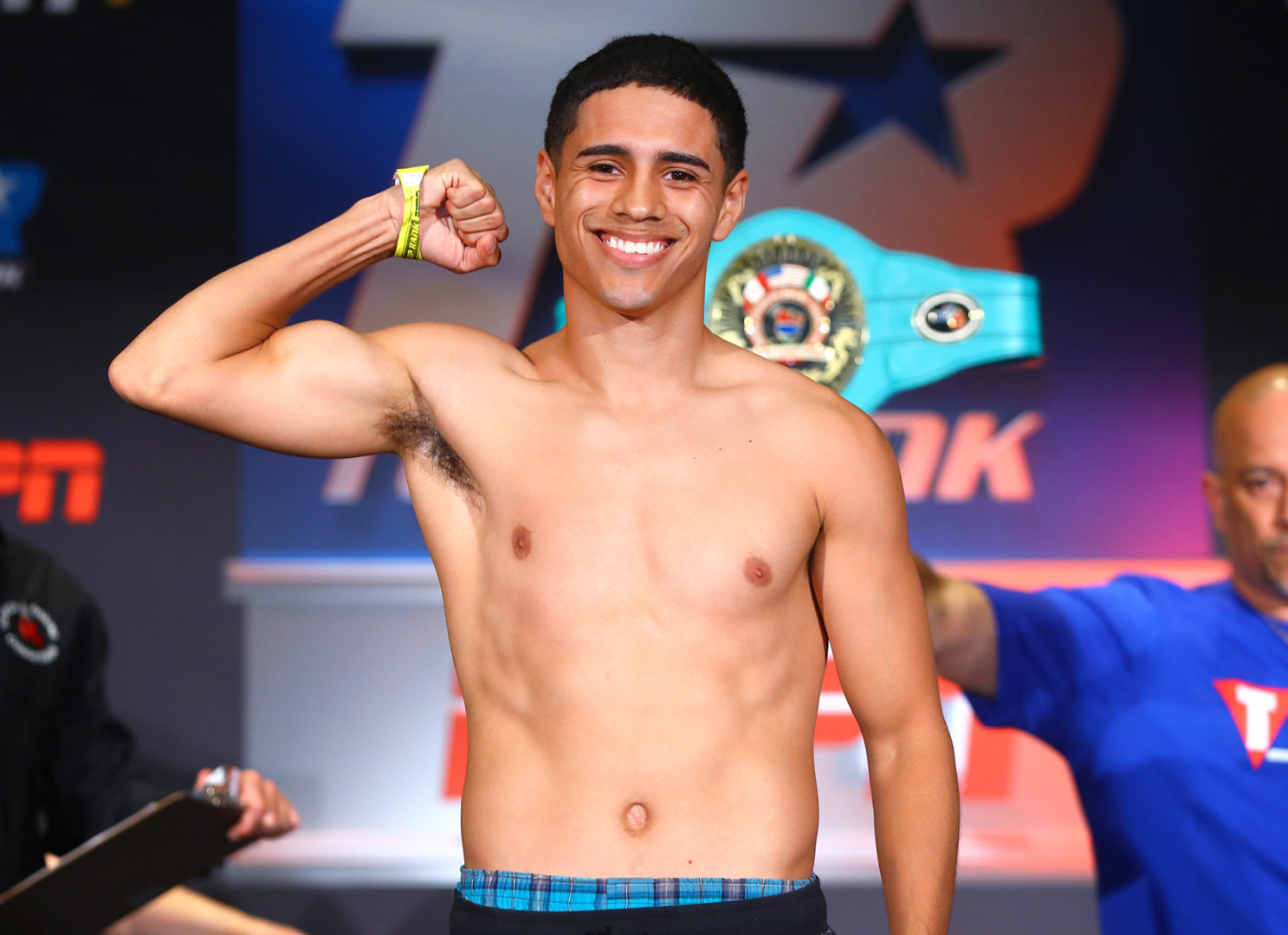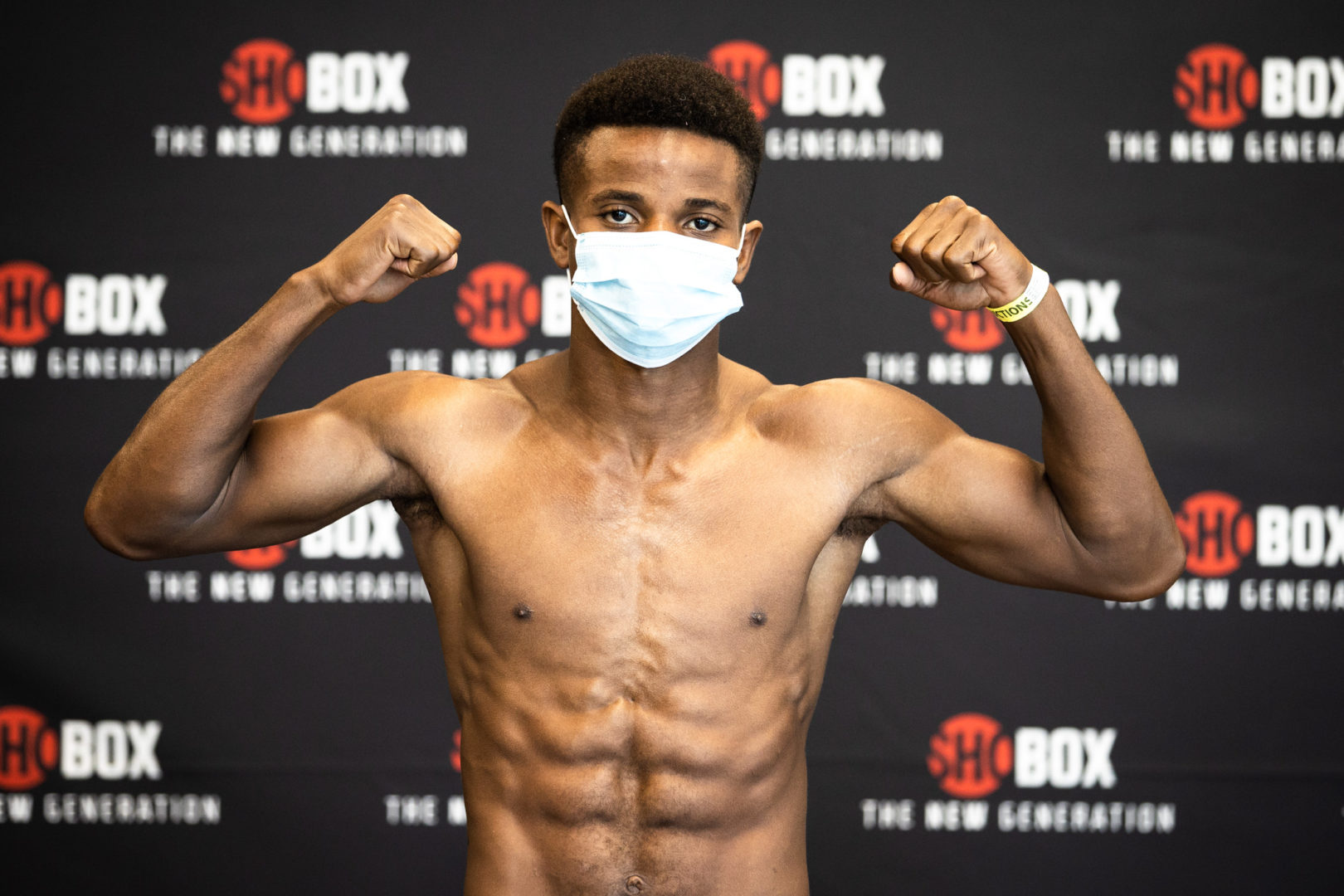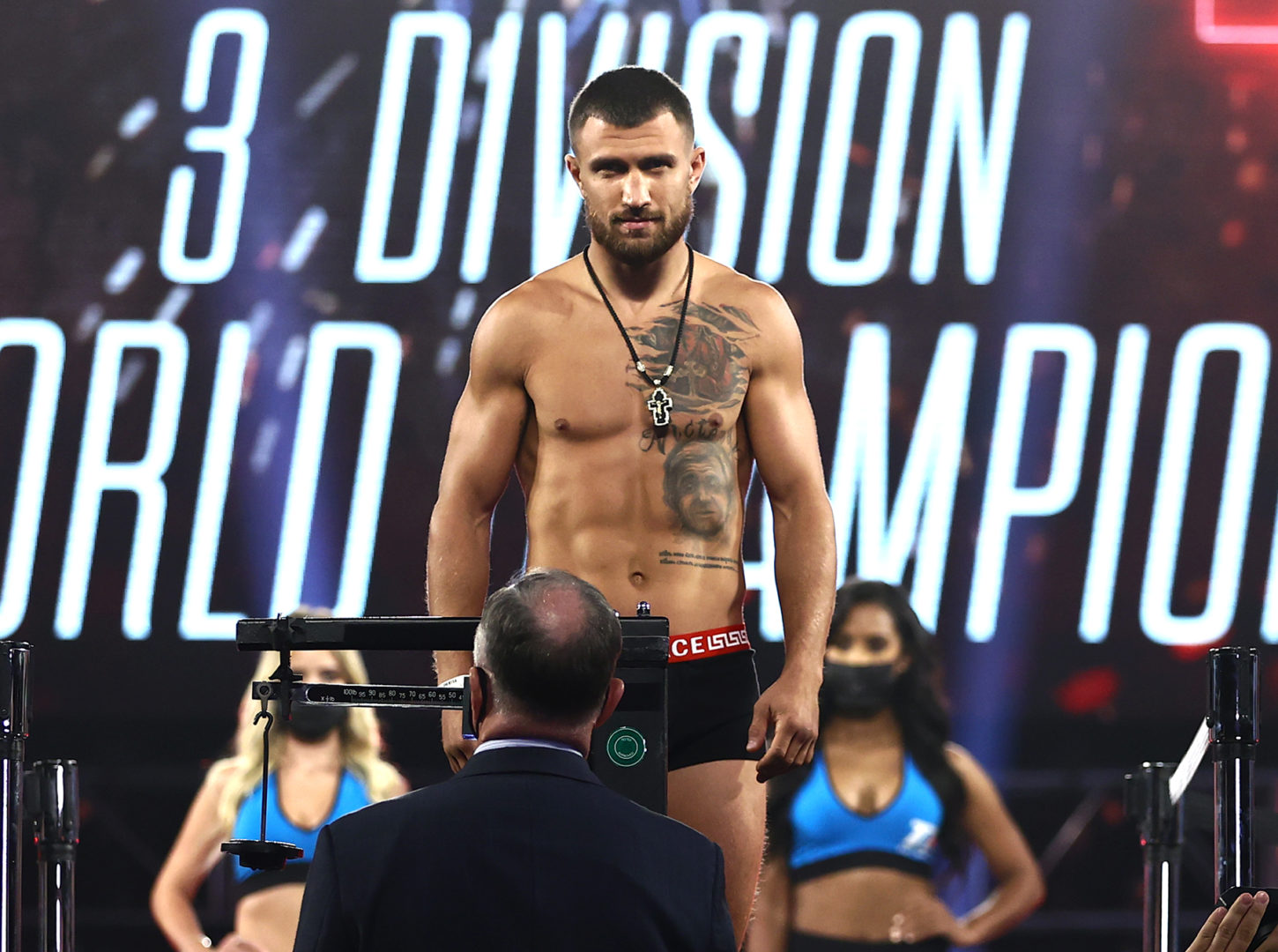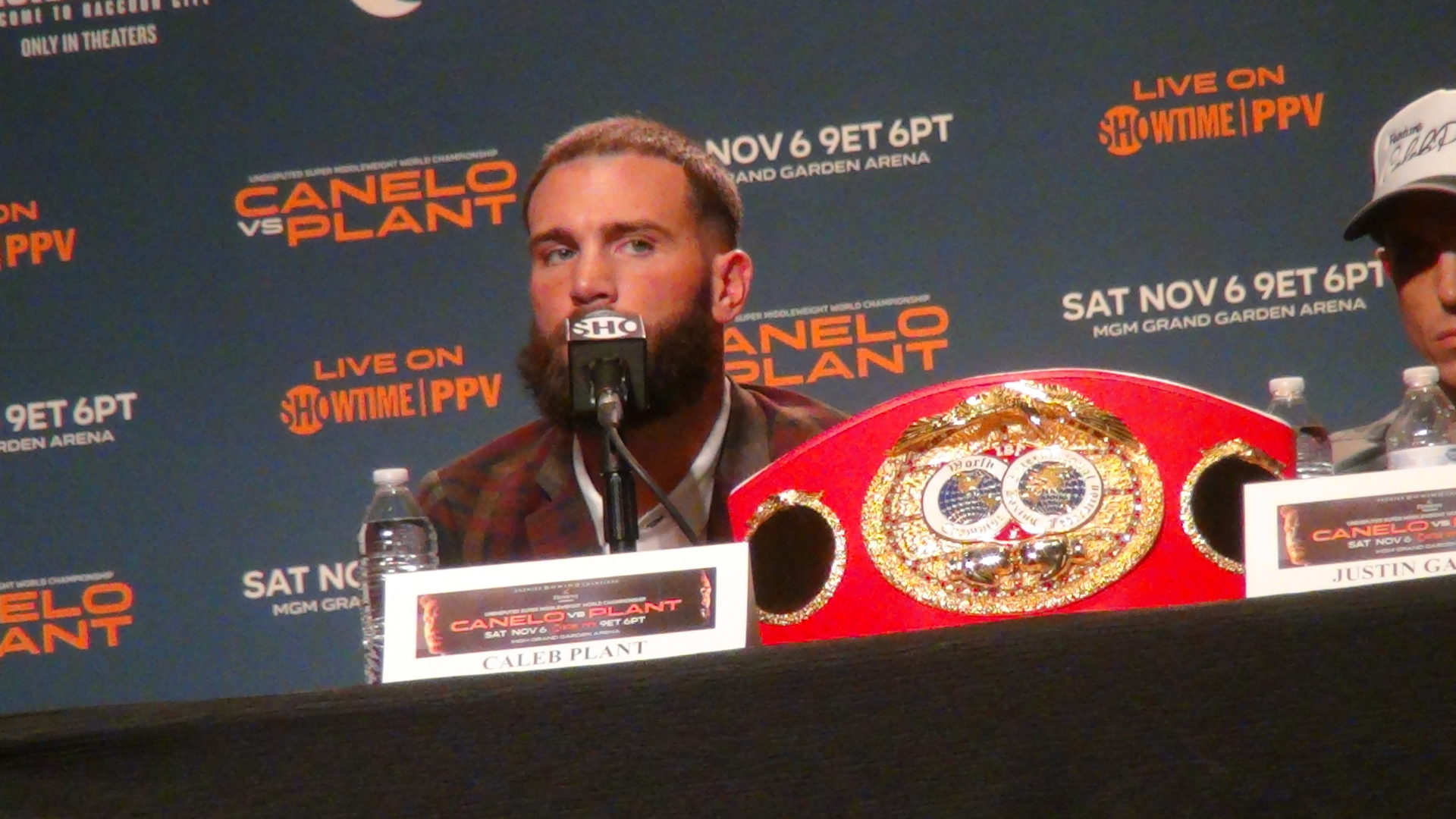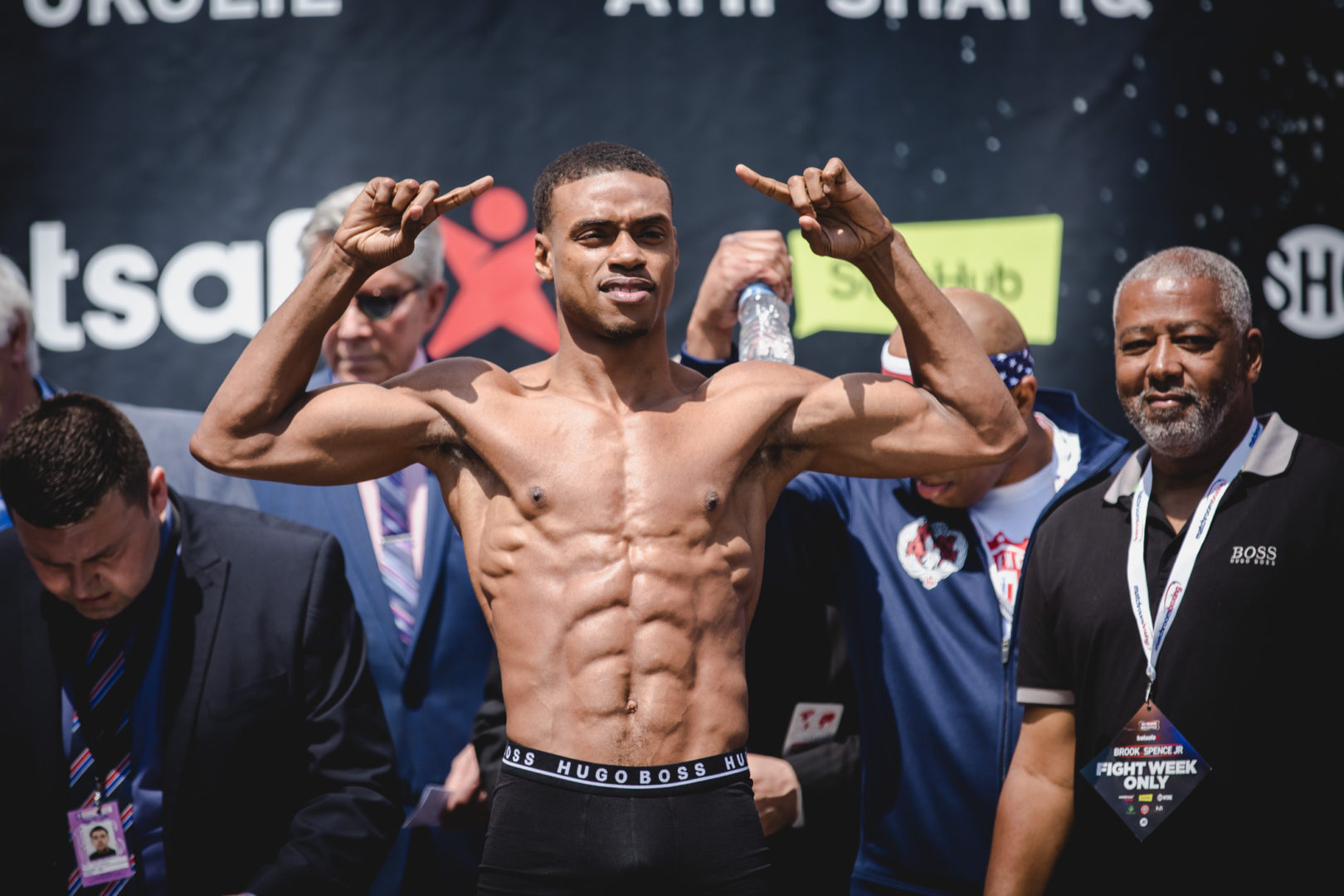By Bart Barry-

Saturday at Barclays Center welterweight titlist Errol Spence unmanned former junior welterweight titlist Lamont Peterson in a very good fight that was stopped by Peterson’s corner after the seventh round. Spence used well the physics and geometry of combat to attain his career’s first title-defense victory.
The inevitability of that victory happened in round 2 when Peterson jabbed to Spence’s body and Spence parryswatted that jab – a classic no no; you do thousands of reps of abwork so you don’t have to parry or block jabs to the body – then Peterson feinted the same punch about a minute later, watched Spence’s hand drop, blasted Spence with a lead hook, and absolutely nothing happened. When one fighter executes perfectly his tactic and the other fighter hardly notices, the match becomes obviously a mismatch. From there the larger, better, more predatory man beat to soft his challenger until mercy intervened.
One hesitates to celebrate the conclusion of the match much as one may wish. In the generally unoriginal and unabashedly imitative domain of contemporary boxing telecasts one fears the rippling consequences of a writer subsequently embracing a corner stoppage by a decent man – for fear it becomes a thing, as the kids like to put it, a shortcut for selfaggrandizing towelboys before television cameras – but with that preamble in place, let us celebrate it nonetheless.
Whatever popular consensus says, and it appears a universally positive consensus, Barry Hunter has the air of a cool cat, a man’s man, a proper gentleman. Even still, if you watch his jaw and the work it does on his chewing gum as he awaits the right moment to stop Saturday’s match, you see right manifested the internal conflict a man like Hunter prides himself on hiding. He knows what a corner stoppage says to a prizefighter about his corner’s confidence, and he knows what happens to a corner once its fighter knows he no longer has its confidence: Time to move on.
Was Hunter’s evident anxiety about getting fired?
No, of course not.
Such a petty concern appears beneath a man like Hunter. It was more an instant weighing of probabilities: This is the last time Lamont can have me in his corner, which means this is the last time I can protect him from himself, which means either this moment releases him into a harsher boxing world, or this moment retires him. Notice Hunter asked for the round number before he made his decision; one imagines if he’d heard, say, “tenth”, he’d have let Peterson out for another while – Lamont deserves to finish, Lamont finishes strong, Errol’s punches lose steam after nine. But the distance from eighth to twelfth, that quarterhour, was too great, so why attempt the leap partially?
What should not be understated in this dynamic, though, is the precedent of Hunter’s commitment to his man. This wasn’t a mercenary trainer doing a celebrity signon with a shot fighter to get himself a new car and recruiting video before hearing his conscience suddenly clang. This was a man proving in the decisive moment his fighter’s decision to give his faith to him, decades before made, was right and good.
None of that makes Peterson a candidate for the Hall of Fame, even had he decisioned Spence – an absurdity Saturday’s broadcast floated before the opening bell. Torn through in his prime by Timothy Bradley and Lucas Matthysse, neither of whom likely gets in the Hall, Peterson got caught with performance enhancers shortly after his one defining win, a desperately narrow decision over Amir Khan – a guy who’ll only get in Canastota by paying $13.50 at the door. And Peterson’s excuse for needing testosterone other than his own was a decided inanity, especially from the bearded mouth of a man covered in muscles. But something had to be manufactured to sell tickets Saturday, and the “Juvenile Brothers Peterson on the Streets of Washington D.C.” narrative was already dustybare from overuse.
All of this indeed takes from Spence’s victory, but one senses Spence won’t mind, honest as he is. Before the match Spence conceded his status as a prizefighter PBC stablemates avoid shamelessly is both evidence of his professionalism and a source of appropriate frustration. Here’s that concession’s flipside: No outfit in boxing history has consistently paid so generously for meaningless fights as the PBC, even while its fighters aren’t active enough against competition enough to achieve universal acclaim (PBC fighters rarely grace pound-for-pound lists, no matter their talent). Spence is the one redeeming part of Al Haymon’s aggressive Team-USA-signing initiative of 2012, an initiative that offered a first peek at Haymon’s generally woeful eye for talent, and aware of, if courteously silent about, the circumstances that got him his title shot on foreign soil in May.
During or immediately after which Spence sustained an injury that kept him from fighting for the rest of . . . no, that’s not what happened at all.
Immediately following one of the year’s most captivating performances nothing followed immediately for Spence. In fact nothing followed for the rest of 2017 except a halfassed announcement he’d be making a halfassed title defense in January.
While it’s possible Spence wouldn’t’ve gotten a chance to drawnbutter Kell Brook if Spence’d not been with PBC, it’s nigh impossible to imagine a worse outfit to direct the career of a new champion if that new champion wants anyone but an accountant to review his reign. “It’s called prizefighting, ya dummy!” – I know, I know. Maximum reward for minimal risk is the Money way, which became the PBC way, which now becomes the Showtime way. But in that case, let’s show a little solidarity, guys, and have the competent commentary crew at Showtime stop harping on how damn inactive PBC fighters are.
Bart Barry can be reached via Twitter @bartbarry


